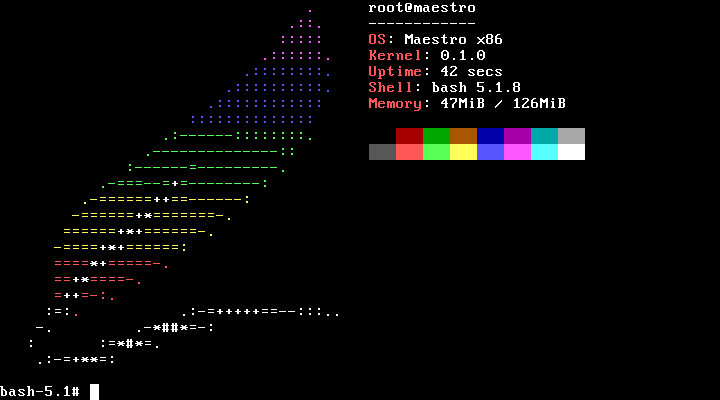Enter Maestro, a unix-like monolithic kernel that aims to be compatible with Linux in order to ensure wide compatibility. Interestingly, it is written in Rust. It includes Solfége, a boot system and daemon manager, maestro-utils, which is a collection of system utility commands, and blimp, a package manager. According to Luc, it’s creator, the following third-party software has been tested and is working on the OS: musl (C standard library), bash, Some GNU coreutils commands such as ls, cat, mkdir, rm, rmdir, uname, whoami, etc… neofetch (a patched version, since the original neofetch does not know about the OS). If you want to test it out, fire up a VM with at least 1 GB of ram.
50MB for a sub POSIX kernel and a shell prompt for a 50MB ISO image that has less functionality than a 4KB kernel (L4SEC) which has actual formal proofs of correctness.
Well, I guess it has Rust as a selling point but that isn’t something that should matter if the goal is real security.
Started as a school project
I wouldn’t take it so seriously, it’s a passion project from a person learning about Rust and OS structure. Don’t compare this project against industry professionals.
Why not ? Even Linux started as a personal fun project. Let’s see where it will go
For sure, but making an OS is not a one man job anymore.
Bah gaw. Terry Davis would say you “glow in the dark.”
I knew there would be at least one TempleOS reference in this thread lmao




